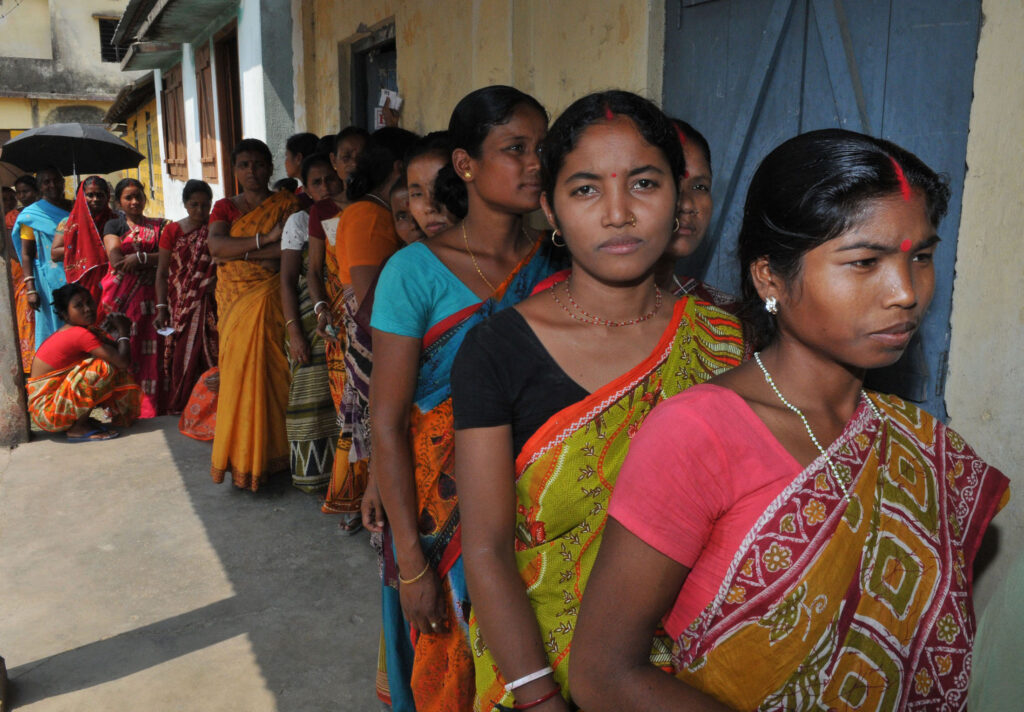Bihar Polls: Cong Alleges Massive Deletion Of Women, Dalit, Muslim Voters
Oct 6, 2025 | Pratirodh Bureau
The Bihar assembly election schedule is expected to be announced later this week, with voting likely to be held shortly after Chhath Puja (Representative Image: Government Open Data License – India)
The Congress party on Sunday accused the Election Commission of India (ECI) of orchestrating a “well-planned conspiracy” by removing nearly 22.7 lakh women’s names from Bihar’s voter list during the Special Intensive Revision (SIR), disproportionately affecting Dalit and Muslim voters in key assembly seats.
At a press conference held at the party’s Indira Bhawan headquarters in New Delhi, All India Mahila Congress president Alka Lamba highlighted the scale of the deletions, stating, “There are approximately 3.5 crore women voters in Bihar, but the names of approximately 23 lakh women (22.7 lakh) have been removed from the voters’ list.” She claimed these removals would disenfranchise many women in the upcoming assembly elections, particularly in districts like Gopalganj, Saran, Begusarai, Samastipur, Bhojpur, and Purnea, which together encompass about 60 assembly seats.
Lamba pointed to the political implications, noting that in the 2020 assembly elections, these seats witnessed “close contests.” She elaborated, “In those seats, the INDIA bloc parties won 25 seats whereas NDA won 34, characterising many of these contests as narrowly decided.” According to her, the deletions are strategically aimed at tilting the balance in favor of the ruling NDA alliance.
The gender disparity was a focal point of her criticism. While acknowledging that around 15 lakh men were also removed, Lamba emphasized, “Women are being disproportionately impacted.” She questioned the validity of recent elections, asking, “When these same women cast their votes in the Lok Sabha elections last year, were these votes still fraudulent? Did these fake votes elect MPs who formed the government?”
Lamba further alleged collusion between the ECI and the BJP-led central government, accusing Prime Minister Narendra Modi of undermining women’s voting rights. “On one hand, Prime Minister Modi is depositing money into women’s accounts to influence the Bihar elections, and on the other hand, he, in collusion with the Election Commission, deleted the names of approximately 23 lakh women from the voters’ list,” she charged. “Modi has targeted and cancelled women’s votes and taken away their rights. But no matter how much Narendra Modi and the Election Commission try, we will not allow ‘vote theft’ to happen in Bihar.”
In response, the Congress has launched a nationwide signature campaign to protest what it calls “vote theft,” aiming to collect five crore signatures. Lamba urged supporters to join the effort, framing it as a defense of democratic participation.
The ECI, however, has firmly defended the SIR process. Chief Election Commissioner Gyanesh Kumar stated that the exercise had “purified” the voter rolls after 22 years and was conducted “in compliance with law.” He expressed satisfaction with the outcome, adding that it ensured the integrity of the electoral process.
Official ECI data reveals that Bihar’s total electors decreased from 7.89 crore to 7.42 crore in the final electoral roll published last Tuesday. The draft list, issued on August 1, had initially reduced the figure to 7.24 crore by removing around 65.64 lakh names due to deaths, migration, and duplication. From draft to final, 21.53 lakh new electors were added, while 3.66 lakh names were further removed, resulting in a net increase of 17.87 lakh voters. Kumar noted that supplementary lists during polling could lead to minor adjustments.
The SIR, a comprehensive door-to-door verification, aimed to update voter records ahead of the Bihar assembly elections, whose schedule is expected to be announced this week. Voting is likely to follow shortly after Chhath Puja, a major festival observed in the last week of October. With the state’s political landscape heating up, the controversy over voter deletions has intensified debates on electoral fairness, especially as Bihar gears up for what promises to be a fiercely contested poll.
